This article was medically reviewed by Luba Lee, FNP-BC, MS. Luba Lee, FNP-BC is a Board-Certified Family Nurse Practitioner (FNP) and educator in Tennessee with over a decade of clinical experience. Luba has certifications in Pediatric Advanced Life Support (PALS), Emergency Medicine, Advanced Cardiac Life Support (ACLS), Team Building, and Critical Care Nursing. She received her Master of Science in Nursing (MSN) from the University of Tennessee in 2006.
There are 7 references cited in this article, which can be found at the bottom of the page.
This article has been viewed 6,868 times.
Just because you’re dealing with a psoriasis flare-up doesn’t mean you can’t enjoy a refreshing dip when the weather warms up. In fact, many people with psoriasis have found that their symptoms actually improve with moderate exposure to sunlight and water. The key is to limit your time in the pool, lake, or ocean to prevent further dryness and irritation. Be sure to shower off immediately afterwards using a chlorine-neutralizing soap and shampoo, and follow up by applying a fragrance-free moisturizer to soothe and nourish your skin.
Steps
Safeguarding Your Skin
-
1Put on sunscreen if you plan on swimming for longer than 15 minutes. Choose a broad-spectrum, water-resistant, zinc oxide or titanium dioxide sunscreen with an SPF of at least 30. Be sure to apply sunscreen to every part of your body that will be exposed to direct sunlight, not just areas that are giving you problems.[1]
- Make it a point to reapply sunscreen every 2 hours for as long as you’re outside.
- You should always wear sunscreen when you’re going to be in the sun for a prolonged period of time. Protecting your skin is especially important if you have psoriasis, however, as too much sun can cause damage or make your symptoms worse.
-
2Shield sensitive spots with mineral oil or petroleum jelly. Spread a thin layer of mineral oil or petroleum jelly over any areas that are particularly itchy, irritated, or inflamed. Both of these substances have water-repellent properties, which means they’ll help to prevent further drying and discomfort.[2]
- Mineral oil will also serve to soften and condition rough, scaly skin.
Advertisement -
3Bring something to cover up with if you’re going to be out all day. Pack a change of loose, long-sleeved clothes or a light robe in your beach bag. That way, you’ll have something to throw on when you’re not in the water, or if the heat of the sun starts to bother you.[3]
- It may also be a good idea to bring a hat or another type of headgear with you to defend your face and scalp from damaging UV rays.
- Avoid tight-fitting garments, as these are more likely to rub and increase irritation. This goes for your swimwear, too.
Tip: Light-colored clothing is a great choice for swimmers with psoriasis, as it will reflect sunlight to keep you cooler while also camouflaging stray flakes.
Swimming Safely
-
1Stay out of the water if you have open sores. Monitor the severity of your symptoms for a day or two before you go swimming. If you have any plaques that are oozing or look like they might be infected, it’s best to stay landlocked. Introducing chlorine and salt water to these areas will only cause pain and increase your risk of infection.
- Even though psoriasis isn’t contagious, venturing into a crowded public pool with weeping sores could present potential health hazards to other swimmers around you.
- Open wounds are also more likely to get infected as a result of swimming in natural bodies of water like lakes and rivers.[4]
-
2Feel free to hit the pool as long as you can rinse off afterwards. In most cases, it's perfectly alright to enjoy a pool day if you have psoriasis, even when you're actively dealing with minor flare-ups. The only caveat is that you'll want to hop in the shower as soon as you get out to flush as much chlorine from your skin as possible. If the pool you're visiting doesn't offer convenient access to a shower, consider simply soaking up some skin-clearing rays from poolside instead.[5]
- Chlorine has a drying effect on almost all normal skin types. On chronically dry, irritated psoriatic skin, it could be enough to cause painful cracking or splitting.
- If you're experiencing a severe flare-up characterized by multiple flaky or scaly plaques, it may be best to avoid chlorinated water altogether until your condition improves.
-
3Try swimming in the ocean to actively alleviate your symptoms. Unlike swimming in a chlorinated pool, which usually only exacerbates itching, dryness, and irritation, swimming in saltwater can actually help your skin look and feel better. The natural salts essentially act as a gentle exfoliant, sloughing off dry, flaky, dead skin and wearing down thick, hardened plaques. They can also kill off infection-causing bacteria lurking around sores.
- Saltwater baths have been used to treat psoriasis, eczema, and other painful skin conditions for hundreds of years. This type of treatment is so effective, in fact, that it actually has its own name: balneotherapy.
- Not everyone with psoriasis may benefit from a dip in the ocean. High concentrations of salt can have a drying effect on some skin types, leaving you feeling worse than when you got in. Use your best judgment and get out if you start to feel uncomfortable.
-
4Limit your time in hot tubs and warm water. The soothing effects of a nice relaxing soak in the hot tub may be just what you need to give yourself some much-needed relief. Just pay attention to how your skin feels and be prepared to get out as soon as you notice your symptoms getting worse. Heat tends to have an intensifying effect on itching and inflammation.[6]
- On the plus side, short soaks in warm water can actually soften hard, crusty patches and reduce flaking.
Warning: Most experts say you should spend no more than about 15-20 minutes in a 100 °F (38 °C) hot tub at a time. For people with severe psoriasis, the ideal timeframe may be closer to 5-10 minutes.
-
5Towel off gently when it's time to get out to avoid discomfort. Use a soft towel to pat your skin and soak up excess moisture. If your plaques are acting up after a lengthy soak, another option is to simply let yourself air dry naturally. With air drying, there’s no need to touch your skin at all other than to slip into a concealing change of clothes.[7]
- Sensitive skin and scratchy beach towels are a bad combination. For more delicate touch, consider investing in a velvety-soft set of towels made from 100% cotton, a cotton-bamboo blend, or raw linen.
Cleaning and Nourishing Your Skin After a Swim
-
1Shower immediately after swimming. Rinse yourself off from head to toe with warm (not hot!) water for 5-10 minutes, flushing areas affected by psoriasis directly under the running water. Just don’t spend too long in the shower, as warm water is one of the major culprits behind itchiness and inflammation.[8]
- Try to hop in the shower as soon as you get back from the pool. The longer the residual chlorine sits on your skin, the more damage it will do.
Tip: Most public pools and beaches have open-air showers that you can use to rinse off right away.
-
2Use chlorine-neutralizing soaps and shampoos if you’ve been in the pool. Clean your entire body thoroughly with products designed to gently strip chlorine from your skin and hair. Doing so will help get rid of any lingering traces of the chemical that might otherwise cause further dryness or irritation.
- Summer Solutions, Triswim, and Mango all make chlorine-neutralizing soaps, body washes, shampoos, and conditioners that are effective enough for swimmers and other water-based athletes yet gentle and affordable enough for daily use.
-
3Finish by treating your skin with a soothing moisturizer. Massage a liberal amount of fragrance-free lotion or oil-based conditioner onto areas affected by your psoriasis, paying particular attention to rough, itchy, and scaly plaques. Afterwards, your skin will be left feeling soft, supple, and ready for your next swim![9]
- If you haven’t already, shop around for a good all-purpose body lotion designed specifically for people with psoriasis and other sensitive skin conditions.
- Get in the habit of applying moisturizer every time you get out of the shower, not just when you’ve been swimming.
Warnings
- Stay away from insect repellents containing DEET. Like chlorine, this harsh chemical could aggravate your psoriasis symptoms if it comes into contact with your skin.⧼thumbs_response⧽
- Failure to fully remove chlorine and other drying agents from your plaques after swimming could result in painful cracking and splitting.⧼thumbs_response⧽
References
- ↑ https://www.aad.org/public/diseases/psoriasis/triggers/flares
- ↑ https://myhealth.alberta.ca/Health/aftercareinformation/pages/conditions.aspx?hwid=abk9795
- ↑ https://www.psoriasis.org/advance/taking-care-of-your-skin-in-summer/
- ↑ https://www.cdc.gov/healthywater/swimming/swimmers/rwi.html
- ↑ https://www.psoriasis.org/advance/taking-care-of-your-skin-in-summer/
- ↑ https://www.aad.org/public/diseases/psoriasis/skin-care/baths-showers
- ↑ https://www.aad.org/public/diseases/scaly-skin/psoriasis/tips-for-managing-psoriasis/8-ways-to-stop-baths-and-showers-from-worsening-psoriasis
- ↑ https://www.psoriasis.org/advance/taking-care-of-your-skin-in-summer/
- ↑ https://myhealth.alberta.ca/Health/aftercareinformation/pages/conditions.aspx?hwid=abk9795
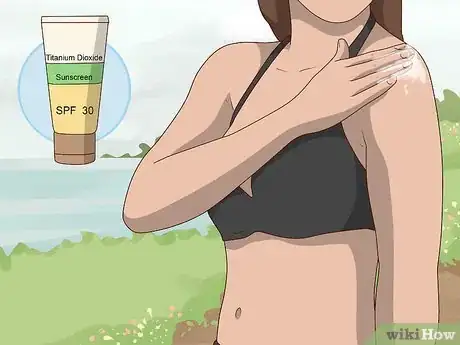
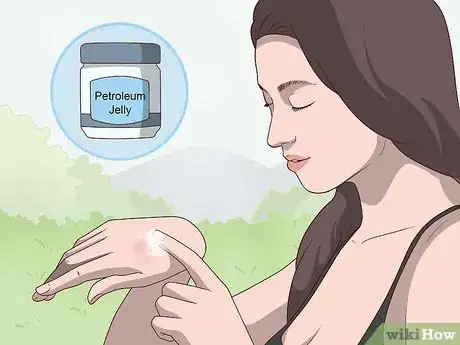

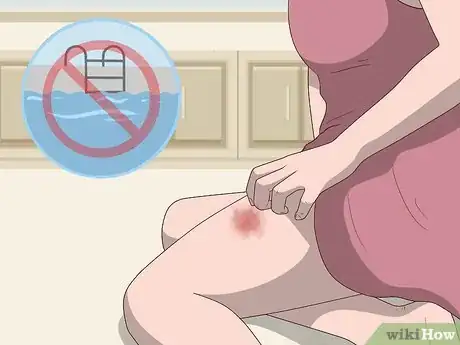
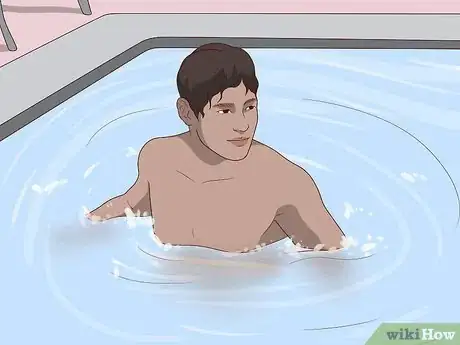
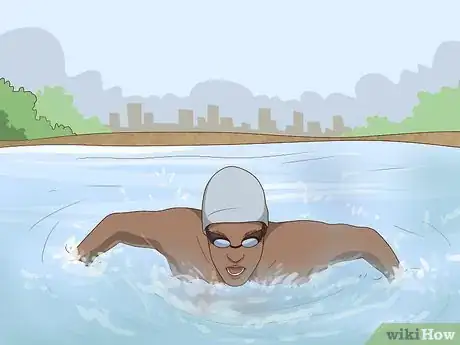
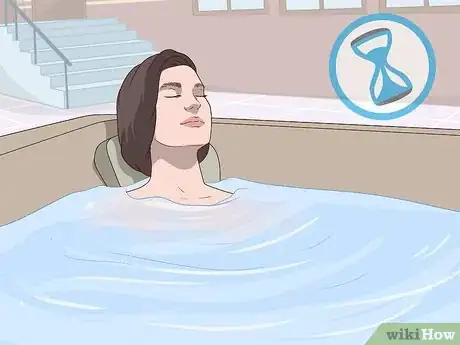


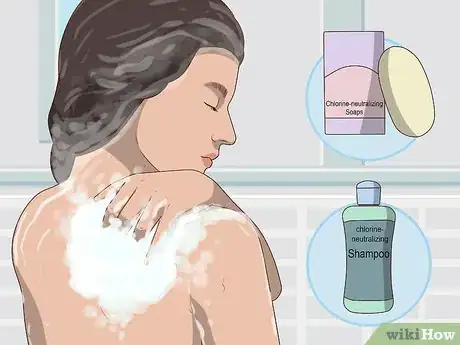
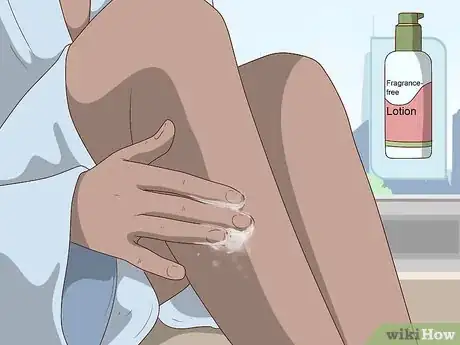

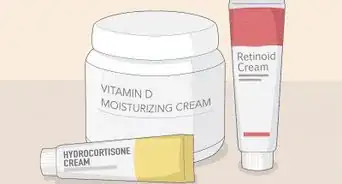
















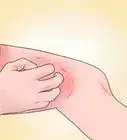



































Medical Disclaimer
The content of this article is not intended to be a substitute for professional medical advice, examination, diagnosis, or treatment. You should always contact your doctor or other qualified healthcare professional before starting, changing, or stopping any kind of health treatment.
Read More...